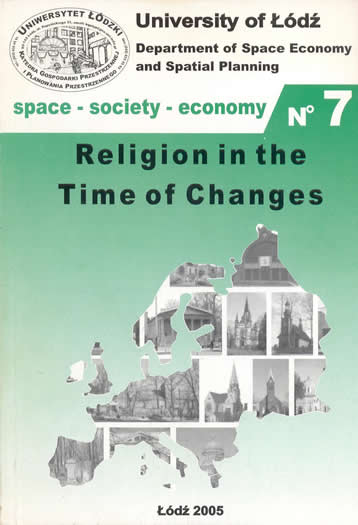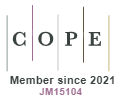Relacja międzyreligijne (interreligijne?) dzisiaj. Cztery paradygmaty
DOI:
https://doi.org/10.18778/1733-3180.07.04Abstrakt
Wraz z przemianą świata w ‘globalną wioskę’ wszystkie wspólnoty religijne zostają zmuszone do zmierzenia się z faktem istnienia i obecności innych wyznań i wyznawców. Choć o ich istnieniu wiedziano już długo wcześniej to nigdy nie były one tak widoczne i trudne do ignorowania jak przez ostatnie kilka dekad. Wspólnoty religijne mają kilka możliwości klasyfikowania ‘innych’. Tradycyjny pogląd, nazywany ekskluzywizmem, stopniowo zanika i jest dzisiaj reprezentowany tylko przez najbardziej konserwatywne kręgi. Najbardziej rozpowszechnionym punktem widzenia, przynajmniej wśród wykształconych adherentów, jest inkluzywizm, a więc postrzeganie własnej religii jako najlepszej lub najbliższej absolutowi przy jednoczesnym uznaniu, że w innych religiach znajdują się elementy prawdy. Wielu myślicieli religijnych traktuje inkluzywizm ciągle jako podejście aroganckie i jedynie bardziej ‘miękką’ formą ekskluzywizmu. Są oni na ogół zwolennikami paradygmatu pluralistycznego, który zaprzecza istnieniu jakiejkolwiek głównej, najlepszej lub uprzywilejowanej tradycji, jakiejkolwiek nadrzędnej odpowiedzi na objawienie. Wszystkie religie postrzegane są jako równe, jako kulturowo uwarunkowane odpowiedzi na Byt Absolutny. Choć ta pluralistyczna perspektywa jest obecnie bardzo popularna, jest też z wielu powodów krytykowana. Z tego względu przez ostatnie dziesięciolecie propagatorzy dialogu między religiami proponowali zarzucenie tradycyjnej typologii stosunków międzywyznaniowych (ekskluzywizm, inkluzywizm, populizm) i rezygnację z wysiłków ustanowienia wspólnej platformy porozumienia dla wszystkich religii lub stworzenie odpowiedniego metajęzyka. W tym czwartym paradygmacie próbuje się uniknąć słabości trzech wcześniejszych podejść, a zachować i ugruntować ich wartościowe elementy. Wydaje się również, że jest to paradygmat, który najlepiej koresponduje osiągnięciami antropologii kultury, filozofii języka i socjologii wiedzy.
Pobrania
Bibliografia
Ariarajah W., The Bible and People of Other Faiths, WCC, Geneva, 1993
Google Scholar
Atherton J., Public Theology for Changing Times, SPCK, London, 2000
Google Scholar
Barnes Christian Identity and Religious Pluralism, Abingdon Press, Nashville, 1989
Google Scholar
Berger P. and T.Luckmann’s The Social Construction of Reality, Doubleday and Co., 1967
Google Scholar
Bernhardt R., Christianity without Absolutes, SCM Press, London, 1994
Google Scholar
Cobb J., Beyond Pluralism, in D‘Costa G., ed., Christian Uniqueness Reconsidered, Orbis New York, 1998
Google Scholar
D’Costa G., The Meeting of Religions and the Trinity, Orbis, New York, 2000
Google Scholar
DiNoia J., Pluralist Theologz of religions, in D‘Costa G., ed., Christian Uniqueness Reconsidered, Orbis New York, 1998
Google Scholar
DiNoia, The Diversity of Religions, Catholic Univ. Of America Press, Washington, 1992
Google Scholar
DOI: https://doi.org/10.2307/j.ctv1w0xcnp
Dupuis J., Toward a Christian Theology of Religious Pluralism, Orbis, New York, 1997
Google Scholar
Dupuis J., Christianity and the Religions, Orbis, New York, 2002
Google Scholar
Fornberg T., The Problem of Christianity in Multi-religious Societies Today, E.Mellen Press, Leviston, 1995
Google Scholar
Geertz C., Religion as a Cultural System, in The Interpretation of Cultures, Basic Books, 1973
Google Scholar
Heim M., Salvations. Truth and Difference in Religion, Orbis, New York, 1995
Google Scholar
Heim M., The Depth of the Riches: A Trinitarian Theology of Religious Ends, Eerdmans, Grand Rapids, 2001
Google Scholar
DOI: https://doi.org/10.1111/1468-0025.00150
Hellwig M., Christology in the Wider Ecumenism, in D‘Costa G., ed., Christian Uniqueness Reconsidered, Orbis New York, 1998
Google Scholar
Hick J., A Christian Theology of Religions, Westminster John Knox Press, Louisville, 1995
Google Scholar
Hick J., An Interpretation of Religion, Yale UP, New Haven, 1989
Google Scholar
DOI: https://doi.org/10.1057/9780230371286
Hick J., God and the Universe of Faiths, Macmillan, London, 1973
Google Scholar
Hick J., God has Many Names, Westminster, Philadelphia, 1982
Google Scholar
Hick J., The Metaphor of God Incarnate, Westminster John Knox Press, Louisville, 1993
Google Scholar
Hick J. and Knitter P., The Myth of Christian Uniqueness, Orbis, New York, 1989
Google Scholar
Hick J. and Hebblethwaite B., Christianity and other Religions, Fortress, Philadelphia, 1980
Google Scholar
Hillman E., Many Paths, Orbis, New York, 1989
Google Scholar
Kärkainen V., An Introduction to the Theology of Religions, IVP, Downers Grove, 2003
Google Scholar
Knitter P., Introducing Theologies of Religions, Orbis, New York, 2002
Google Scholar
Küng H., Global Responsibility, SCM Press, London, 1991
Google Scholar
Lindbeck G., The Nature of Doctrine, Westminster John Knox Press, Philadelphia, 1984
Google Scholar
Lochhead D., Dialogical Imperative, Orbis, New York, 1988
Google Scholar
Milbank J., The End of Dialogue, in D‘Costa G., ed., Christian Uniqueness Reconsidered, Orbis New York, 1998
Google Scholar
Moltmenn J., Is “Pluralistic Theology” Useful for the Dialogue of World Religions?, in D‘Costa G., ed., Christian Uniqueness Reconsidered, Orbis New York, 1998
Google Scholar
Netland H., Dissonant Voices, Apollos, Leicester, 1991
Google Scholar
Netland H., Encountering Religious Pluralism, IVP, Downers Grove, 2001
Google Scholar
Oberhammer G., ed., Inklusivismus. Eine indische Denkform, Wien, 1988
Google Scholar
Panikkar R., The Trinity and the Religious Experience of Man, Orbis, New York, 1973
Google Scholar
Race A., Christian and Religious Pluralism: Patterns in the Christian Theology of Religions, London SCM Press 1993
Google Scholar
Richards G, Towards a Theology of Religions, Routledge, London, 1989
Google Scholar
Sinkinson Ch., The Universe of Faiths, Paternoster Press, Carlisle, 2001
Google Scholar
Smith W.C., Idolatry, in Hick J. and Knitter P., The Myth of Christian Uniqueness, Orbis, New York, 1989
Google Scholar
Smith W.C., The Meaning and End of Religion, Harper and Row, San Francisco, 1962
Google Scholar
Smith W.C., Towards a World Theology, Macmillan, London, 1981
Google Scholar
Stackhouse M., Public Theology and Political Economy, Eerdmans, Grand Rapids, 1987
Google Scholar
Stendhal’s essay in Anderson G. and Stransky T., Christ’s Lordship and Religious Pluralism, Orbis, New York, 1981
Google Scholar
Surin K., A Politics of Speech, in D‘Costa G., ed., Christian Uniqueness Reconsidered, Orbis New York, 1998
Google Scholar
Swidler L., Toward a Universal Theology of religions, Orbis, New York, 1998
Google Scholar
Tracy D., Dialogue with the Other, Eerdmans, New York, 1991
Google Scholar
Pobrania
Opublikowane
Jak cytować
Numer
Dział
Licencja

Praca jest udostępniana na licencji Creative Commons Attribution-NonCommercial-NoDerivatives 3.0 Unported License.









